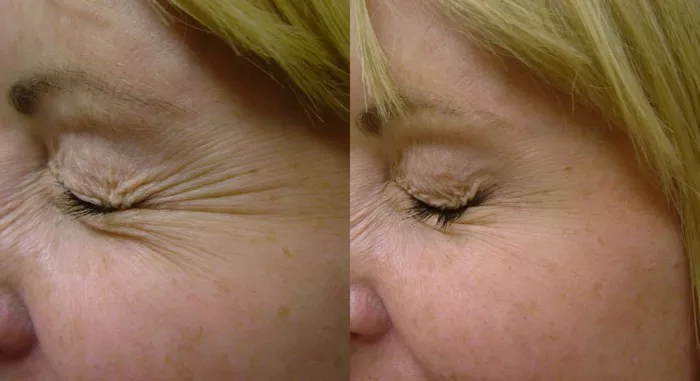Laser eye surgery, also known as refractive surgery, has become a popular option for individuals seeking to correct their vision and reduce dependency on glasses or contact lenses. If you are considering laser eye surgery, one important factor to consider is the ideal age for undergoing the procedure. In this article, we will explore the considerations and benefits associated with different age groups to help you determine the best age for laser eye surgery.
Understanding Laser Eye Surgery
Laser eye surgery is a procedure that uses laser technology to reshape the cornea, the transparent front surface of the eye. The goal of the surgery is to correct refractive errors such as nearsightedness (myopia), farsightedness (hyperopia), and astigmatism. By reshaping the cornea, laser eye surgery aims to improve the eye’s focusing ability, resulting in clearer vision without the need for corrective lenses.
Considerations for Different Age Groups
While laser eye surgery can be performed at various ages, certain considerations are important to keep in mind for different age groups:
-
Young Adults (18-24 years)
The FDA-approved age for laser eye surgery is 18 years. In young adults, it is essential to ensure that the refractive error has stabilized before considering the procedure. The stability of refractive error typically occurs around the age of 18 to 24. Undergoing laser eye surgery at a younger age may result in the need for a touch-up procedure later if the refractive error continues to change.
-
Adults (25-40 years)
This age group often includes individuals who have experienced stable vision for several years. However, it is important to note that presbyopia, an age-related condition that affects near vision, usually begins to develop around the age of 40. Laser eye surgery can correct distance vision but may not address presbyopia. Some individuals in this age range may choose to undergo a monovision procedure, where one eye is corrected for distance vision and the other for near vision.
-
Middle-aged Adults (40-55 years)
Presbyopia becomes more prevalent during this age range. Laser eye surgery can still be an option for individuals in this group, but it may be accompanied by additional procedures to address presbyopia, such as monovision or multifocal lens implants. It is important to have realistic expectations and discuss all available options with a qualified eye surgeon.
-
Seniors (55+ years)
As individuals age, the eye’s natural lens becomes less flexible, leading to a higher likelihood of developing cataracts. In cases where cataracts are present, cataract surgery may be the preferred option over laser eye surgery. Cataract surgery can also correct refractive errors, potentially eliminating the need for glasses or contact lenses.
Benefits of Laser Eye Surgery
Laser eye surgery offers numerous benefits, regardless of age:
-
Reduced Dependency on Corrective Lenses
One of the primary benefits of laser eye surgery is a significant reduction in the need for glasses or contact lenses. Many individuals experience improved vision and greater freedom to engage in activities without the hassle of constantly relying on corrective eyewear.
-
Convenience and Comfort
Laser eye surgery eliminates the need for daily lens maintenance, such as cleaning and replacing contact lenses. It also eliminates the inconvenience of carrying glasses or worrying about them getting lost or broken.
-
Improved Quality of Life
Clearer vision can have a positive impact on various aspects of life, including work, hobbies, sports, and overall self-confidence. Laser eye surgery can provide a long-term solution that enhances the quality of life and allows individuals to enjoy better vision without the limitations of corrective lenses.
-
Long-Term Cost Savings
While the initial cost of laser eye surgery may seem significant, it is important to consider the long-term cost savings associated with reduced dependency on glasses or contact lenses. Over time, the expenses related to purchasing glasses, contact lenses, and associated maintenance can add up significantly.
Consultation with an Eye Care Professional
Determining the best age for laser eye surgery requires a comprehensive evaluation by a qualified eye care professional. An eye surgeon will assess factors such as the stability of refractive error, overall eye health, and individual circumstances to provide personalized recommendations. They will discuss the available options, potential risks, and expected outcomes to help you make an informed decision.
Conclusion
The best age for laser eye surgery depends on several factors, including the stability of refractive error, age-related vision changes, and individual circumstances. While the FDA-approved age for laser eye surgery is 18, the ideal age may vary depending on the specific needs and considerations of the individual. Consulting with a qualified eye surgeon is crucial to determine the most suitable age and discuss the available options. Laser eye surgery can provide significant benefits, including reduced dependency on corrective lenses, convenience, improved quality of life, and long-term cost savings. With advances in technology and surgical techniques, laser eye surgery has become a reliable and effective option for many individuals seeking improved vision and a life free from the constraints of glasses or contact lenses.


